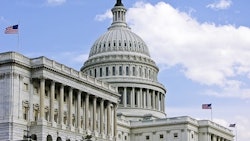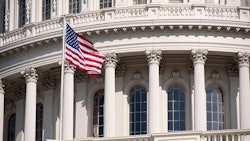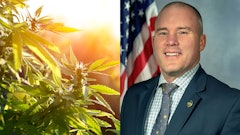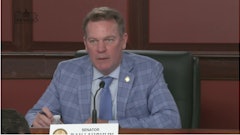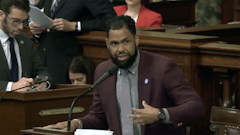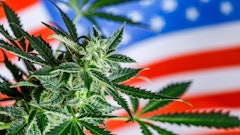
Editor's note: This story was updated at 10:20 a.m. ET on Wednesday, Feb. 16 to reflect that the full Virginia Senate has approved the bill.
The Virginia Senate approved legislation Feb. 15 to launch adult-use cannabis sales this September, sending it to the House of Delegates for consideration.
If Senate Bill 313 ultimately receives House approval and is signed into law by Gov. Glenn Youngkin, it would allow certain medical cannabis operators in the state to sell cannabis to the broader adult-use market starting Sept. 15, according to a WRIC report.
The full adult-use market would then launch in 2024, the news outlet reported.
Below is the original report from Cannabis Business Times.
***
Virginia lawmakers have advanced legislation that would launch the state’s adult-use cannabis market sooner than expected.
On Feb. 10, the Senate Finance Committee approved Senate Bill 313, legislation sponsored by Sen. Adam Ebbin that would allow Virginia’s medical cannabis operators to serve the broader adult-use market starting Jan. 1, 2023, according to a Richmond BizSense report.
Additional adult-use cannabis businesses would then be able to launch on Jan. 1, 2024, under Senate Bill 391, separate legislation that aims to reenact last year’s adult-use cannabis law, the news outlet reported.
Virginia’s legalization law cleared the Legislature and received former Gov. Ralph Northam’s signature in April 2021 but requires reauthorization this year before it can take effect.
RELATED: New Governor, Reenactment Clause Could Mean Changes to Virginia’s Adult-Use Cannabis Law
S.B. 313 would require the state’s licensed medical cannabis businesses to pay a $6 million fee to participate in adult-use sales, Richmond BizSense reported. The legislation initially set the fee at $1 million and allowed industrial hemp businesses to serve the adult-use cannabis market, according to the news outlet, although those provisions have since been cut.
“In terms of the standards for human ingestion and quality control … [medical cannabis businesses have] got the vast experience,” Ebbin told the Senate Rehabilitation and Social Services Committee earlier this month, according to Richmond BizSense. “I did have hemp in there originally but they wouldn’t be quite as ready.”
S.B. 313 would limit medical cannabis operators to 80,000 square feet of grow space for adult-use cannabis, the news outlet reported, and the businesses could then serve the medical and adult-use markets at the five dispensaries they are allowed to operate under Virginia’s medical cannabis law.
The state currently has four active medical cannabis operators, according to Richmond BizSense, including Columbia Care, Green Leaf Medical (which is owned by Columbia Care), Jushi Holdings and Green Thumb Industries.
S.B. 313 requires medical cannabis businesses that choose to participate in the adult-use market to create incubator programs to help establish small, independent businesses that qualify as social equity applicants in the adult-use market, Richmond BizSense reported.
The legislation would levy a 21% sales tax on adult-use cannabis, according to the news outlet, and tax and fee revenue would be earmarked for the Cannabis Control Authority to establish a loan program for cannabis startups that qualify as social equity applicants. In addition, local governments would have the ability to levy an additional 3% sales tax on adult-use cannabis.
S.B. 391, the adult-use cannabis reenactment bill, eliminates most of the business license caps that were included in Virginia’s legalization law and instead allows the Cannabis Control Authority to determine the number of licenses it will issue for most business types, Richmond BizSense reported. The legislation does set a limit of 400 adult-use dispensary licenses, however.
The bill also changes the definition of social equity applicants, according to the news outlet, in an effort to support startups operated by those most impacted by the war on drugs.
Now that they have passed out of committee, S.B. 313 and S.B. 391 go to the full Senate, where a vote is expected by Feb. 15, Richmond BizSense reported.







